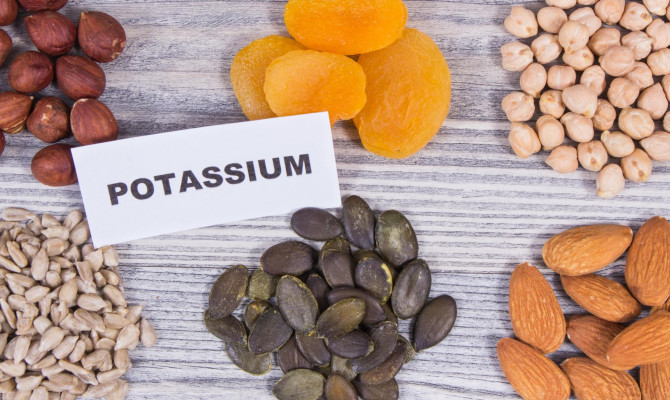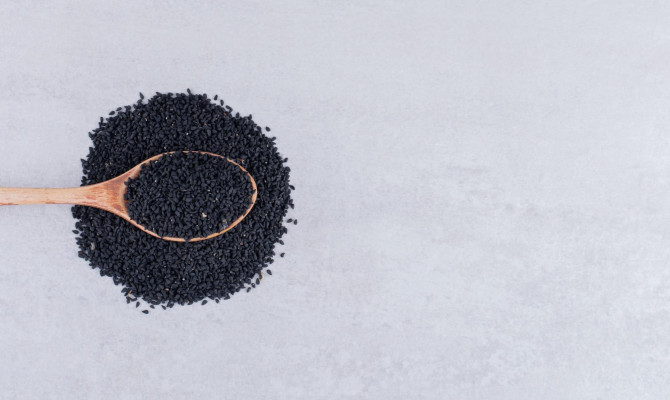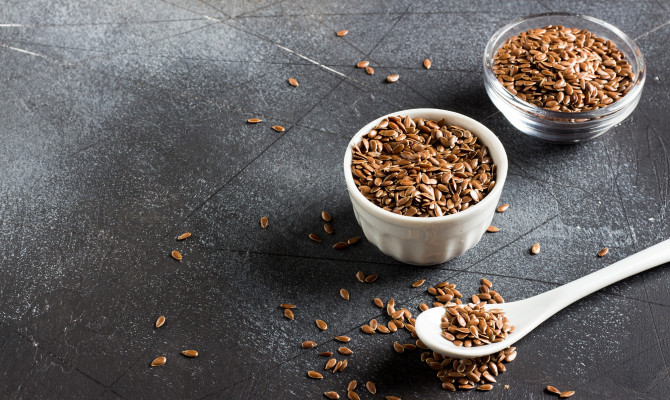Coenzyme Q10 and its health benefits

- Coenzyme Q10
- 16 Aug 2023
Overview
What is Coenzyme Q-10?
Coenzyme Q-10, also known as ubiquinone or CoQ-10, is a quinone that occurs naturally and is present in the majority of aerobic species, ranging from bacteria to mammals. Coenzyme Q10 is also referred to as Coenzyme Q, CoQ10, Ubiquinone-Q10, Ubidecarenone, and Vitamin Q10.3Overview| Researched based study from Nccih.nih.gov
CoQ10 is a chemical that is found in the human body in its natural state, with the largest concentrations being found in the pancreas, liver, kidneys, and heart. As a dietary supplement, it is sold widely in the United States. Researchers have been interested in determining whether or not taking CoQ10 supplements would have any positive effects on a person’s health due to the fact that the substance has key roles in the body and that persons with certain disorders have lower levels of this substance.

Effects
CoQ10’s Effects on the Body
- It functions as a covariable in the electron-transport chain, in the sequence of redox processes that are involved in the creation of adenosine triphosphate, where the fundamental biological activity of CoQ10 takes place. 2Effects| Researched based study from Nlm.nih.gov
- CoQ10 is necessary for the health of almost all of the body’s tissues and organs due to the fact that the majority of cellular processes are dependent on their being an appropriate supply of adenosine triphosphate (ATP).
- Coenzyme Q10 is among the most essential lipid antioxidants, and it stops the production of free radicals as well as changes of DNA, proteins, and lipids.
- The proportion of coenzyme Q10 in the human body decreases in many disease conditions that are associated with increased production and the activity of reactive oxygen species (ROS).
- Coenzyme Q10 deficiency results in the breakdown of the respiratory chain, which is caused by the insufficient generation of highly energetic products, which decreases cellular efficiency.
Sources
Sources of CoQ10
- Whole grains, fatty fish (like salmon and tuna), and organ meats (like liver) are some of the primary dietary sources of coenzyme Q10 (CoQ10).2Sources| Researched based study from Nlm.nih.gov
- The majority of people are able to get the amount of CoQ10 they need by eating a healthy, well-balanced diet; but, taking a supplement may be beneficial for people who have certain health conditions.
- Tablets, soft gel capsules, oral spray, and hard shell capsules are the several types of dietary supplements that you can get in the form of coenzyme q10.
- CoQ10 is often administered in quantities ranging from 30 to 90 milligrams on a daily basis; however, the quantity that is considered optimal can be as high as 200 milligrams per day.
Benefits

What are the benefits of taking CoQ10 supplements?
Regulation of vital functions
- Antioxidants, such as CoQ10, have the ability to destroy free radicals, which may help mitigate some of the damage they cause or even assist prevent some of it.2Benefits| Researched based study from Nlm.nih.gov
- CoQ10 is a powerful antioxidant that also strengthens the immune system and improves general energy proportions.
- It is possible that the usage of coenzyme Q10 supplements, either on their own or along with other drug therapeutics and nutritional supplements, could help negate or treat some of the conditions listed below, including cardiovascular diseases, high blood pressure, cancer, mitochondrial disorders, radiation injury, diabetes, Parkinson’s disease, acquired immune deficiency syndrome (AIDS), gastric ulcers, migraine headaches, kidney failure, muscular dystrophy, and agilities.
- Because the tissues and cells which are part of the immune function are highly energy-dependent and, as a result, require a sufficient supply of CoQ10 for optimal function, CoQ10 plays a significant role in boosting both the immune system and physical performance.
Health benefits of CoQ10
Parkinson’s disease
- According to the findings of a multicenter, randomized, double-blind, placebo-controlled research involving 80 patients, taking 1,200 mg per day of coenzyme Q10 was related to up to 44% less functional decline in individuals with Parkinson’s disease. 1Benefits| Researched based study from Aafp.org This decline included patients’ inability to perform activities of daily life.
- With a daily oral dose of 360 mg of coenzyme Q10, patients with Parkinson’s disease in a study with 28 participants demonstrated a slight improvement in their symptoms. These findings are now undergoing verification.
Encephalomyopathies caused by mitochondrial dysfunction
- Coenzyme Q10 has shown positive trends in reducing symptoms associated with selected mitochondrial abnormalities, such as mitochondrial encephalopathy, lactic acidosis, stroke-like episodes (MELAS) syndrome, the Kearns-Sayre syndrome, and the myoclonus epilepsy with ragged-red fibers (MERRhF) syndrome, in studies involving between eight and forty-four patients.1Benefits| Researched based study from Aafp.org
- On the basis of a few limited clinical tests, the United States Food and Drug Administration (FDA) designated a specific form of coenzyme Q10 known as UbiQGel as an orphan medication for the treatment of mitochondrial cytopathies.
Migraine
- Coenzyme Q10 was found to be effective in reducing the incidence of migraine attacks in a preliminary open-label trial including 32 individuals taking 150 mg of the supplement on a daily basis.1Benefits| Researched based study from Aafp.org
Congestive heart failure
- Several randomized controlled trials, some of which were included in a meta-analysis conducted in 1997, found an improvement in a number of clinical parameters related to CHF.
- Two of the most recent randomized clinical trials that used ventriculography and echocardiography indicated that taking 100 to 200 mg of coenzyme Q10 per day was no more helpful than a placebo in terms of enhancing ejection fraction, peak oxygen consumption, activity duration, or quality of life.
- In a more recent study, coenzyme Q10 was used in conjunction with carnitine and taurine, and the results did show some improvement in clinical symptoms.
- The recently published research by the Agency for Healthcare Research and Quality (AHRQ) that looked at cardiovascular trials came to the conclusion that the effect of coenzyme Q10 is still a mystery.1Benefits| Researched based study from Aafp.org
Hypertension
- A comprehensive evaluation of eight trials indicated that administering coenzyme Q10 for essential hypertension at various doses, often as adjuvant therapy, resulted in an average decline in systolic and diastolic blood pressure of 16 and 10 mm Hg, respectively.
Other cardiac diseases
- The data for the use of coenzyme Q10 in different cardiovascular settings is promising but needs to be tested in larger trials that last for a longer period of time.1Benefits| Researched based study from Aafp.org
- In clinical trials that were controlled with a placebo, the use of the coenzyme after cardiopulmonary resuscitation showed an improvement in three-month survival, while the use of the coenzyme after cardiac surgery showed improvements in myocardial isoenzyme levels, left ventricular function, and postoperative recovery time. Both of these findings were positive.
- The coenzyme Q10 group displayed a statistically significant reduction in the overall number of cardiac events, which included both fatal and nonfatal myocardial infarctions.
- The reduction in endothelial dysfunction may be responsible for this improvement, which has been linked to it.
- Research conducted on various disorders, including angina pectoris, cardiomyopathy, and physical exercise ability, has shown mixed results and calls for further investigation.
Diabetes
- It has been hypothesized that coenzyme Q10 could improve glycemic control through a variety of mechanisms, including a reduction in the amount of oxidative stress experienced.
- Patients with type 1 or type 2 diabetes who took anywhere from 100 mg to 200 mg of coenzyme Q10 in two earlier randomized controlled trials found no difference in their ability to regulate their blood sugar or their need for insulin.
- The A1C levels of participants in a more recent randomized controlled trial that used 200 mg per day for a period of 12 weeks showed just a slight improvement.
The Agency for Healthcare Research and Quality found no evidence to assess the efficacy of coenzyme Q10 for this usage, despite the fact that it is used for the prevention and treatment of cancer.
Research is still ongoing, and multiple phase II clinical trials are currently underway in order to clarify its potential significance in the treatment of illnesses such as Alzheimer’s disease, breast cancer, human immunodeficiency virus and acquired immunodeficiency syndrome, periodontal disease, and Duchenne’s muscular dystrophy, among others.
Adverse effects
Adverse effects of CoQ10 intake
When taken as prescribed, CoQ10 supplements seem to be risk-free and to have little negative effects.1Adverse effects| Researched based study from Aafp.org
Some negligible negative consequences include:
- Abdominal discomfort
- Nausea and Vomiting
- Change in bowel movement
- Reduced appetite
- Change in sleeping pattern
- Skin irritation and rashes
- Change in mood
Interactions
CoQ10 Interactions with other medicines
Warfarin (Anticoagulants)
- When taken together, the effect of warfarin reduces. Case studies have highlighted the possibility of interactions between warfarin (Coumadin) and other medications that could result in a lower international normalized ratio (INR).1Interactions| Researched based study from Aafp.org
Hypoglycemic
- Monitoring is recommended while using coenzyme Q10 adjunctively with hypoglycemic drugs because of the possibility that it may lower blood sugar levels and blood pressure and result in severe hypoglycemia. 1Interactions| Researched based study from Aafp.org
Other
- When CoQ10 is taken with drugs like statins and beta-blockers, the level of CoQ10 in the body drops.
Takeaway
Key Takeaways
- Coenzyme Q10, also known as ubiquinone and ubiquinol, is a quinone that is fat-soluble and has a structure that is comparable to that of vitamin K.
- It works well as an antioxidant both on its own and when combined with vitamin E, and it plays a crucial role in the ATP cycle, which is the process by which the body generates energy.
- CoQ10 is present in the cell membranes of all of the body’s cells, but it is most prevalent in the mitochondria of the heart, lungs, liver, kidneys, spleen, pancreas, and adrenal glands. CoQ10 is also present in the cytoplasm of all of the body’s cells.
- Only about 500-1500 milligrams of coenzyme Q10 are found throughout the entire body, and this amount declines with increasing age. Coenzyme Q10 is one of the most important lipid antioxidants because it stops theproduction of free radicals and inhibits the alteration of DNA, proteins, and lipids.
Any feedback on this article?
 This Articles content was accurate
This Articles content was accurate Very Informative Article
Very Informative Article I have a question or a comment
I have a question or a comment
 This article contains inaccurate content
This article contains inaccurate content This article was not helpful
This article was not helpful I have a question or a comment
I have a question or a comment
We appreciate your helpful feedback!
Checkout our social pages
References
-
American Academy of Family Physicians
Coenzyme Q10 | Benefits | Adverse effects | Interactions
-
National Library of Medicine
Coenzyme Q10: The essential nutrient | Overview | Effects | Sources
-
National Center for Complementary and Integrative Health
Coenzyme Q10 | Overview




































